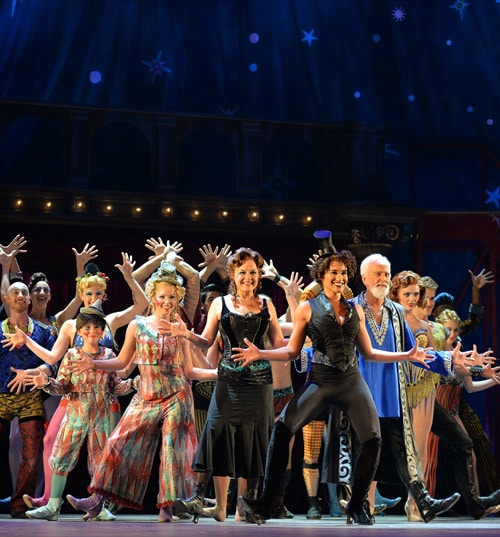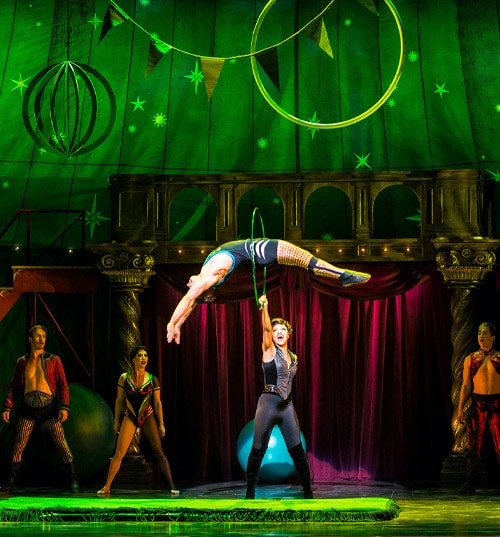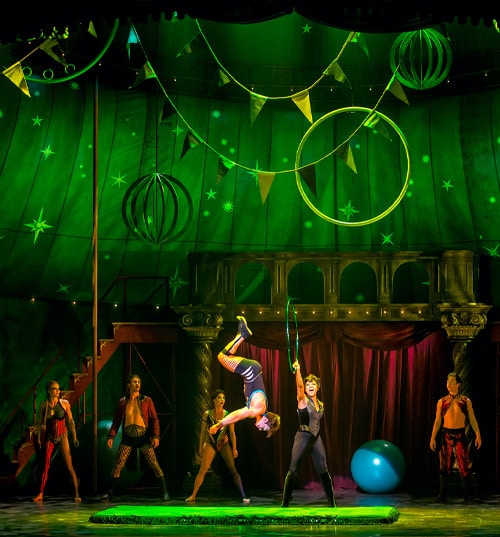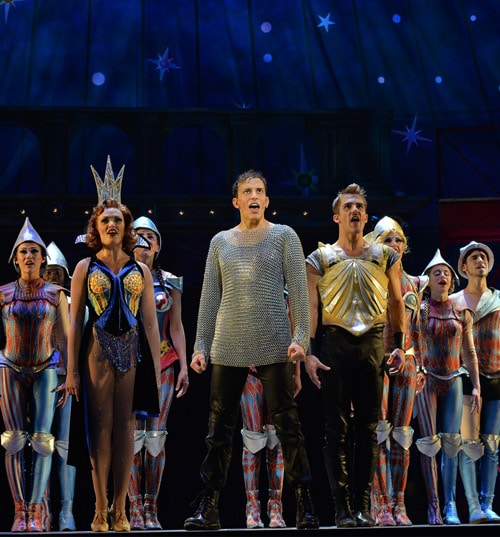The Importance of Staging Musical Theatre Revivals: The Age of Pippin
The Oxford English Dictionary defines ‘revival’ as ‘an instance of something becoming popular, active or important again’. This is exactly what is hoped for when musical theatre in Australia emerges from its protracted hibernation this November, with the Tony Award-winning Pippin welcoming back audiences to Sydney’s 2000-seat Lyric Theatre.
Why Musicals?
More than any other aspect of the Arts, musical theatre is inherently fragile – with productions often requiring capital investment of $15- $20 million, its resurgence can make or break the future of venues across the globe. In this more chastened world, can audiences afford expensive theatre tickets? Unlike film and televised drama, musical theatre cannot come to us; we must go to it. And for management teams, that means ensuring not only that venues are COVID-safe, but that marketing is carefully pitched in both health-related and economic terms. Its failure would change the face of theatre-going forever. As is the nature of revivals, we may well anticipate that Pippin will speak to new sensibilities and potentially new audiences. Musical theatre has the potential to transport, engage and rejuvenate spectators – all much-needed in the current climate. But is Pippin set only to entertain, or does it have a much darker side that resonates all too uncomfortably with modern life? Perhaps looking at the ‘Five Ws’ – who, what, when, where, why – of the narrative can reveal this musical’s true purpose…
The ‘Five Ws’ of Pippin
Since it burst onto the stage in 1972, Pippin has had the potential to be produced as either a bouncy extravaganza or a disturbing ‘black box’ tale – Bob Fosse, director of the original Broadway production, certainly envisioned the script from the latter perspective. Given the timing, it certainly seems that the characters, story arc, context and motifs lend themselves to a modern – both troubling and optimistic – interpretation.
Who?
Prince Pippin, the eponymous protagonist, is a character with whom many of us can identify: he is ‘lost’, discontented, lacking direction; he is yearning for a meaningful life but is without a ‘road-map’ as a guide. Such an existential crisis could apply to any one of us; it could certainly echo the situation of the many of us who have recently had to question and rethink our lives in the midst of an international health crisis and its impact. Like most of us, Pippin wants to be more than just ordinary; he wants to find his ‘Corner of the Sky’, perhaps due in part to his physical shortcomings (he is known as Pepin the Hunchback). Emerging from his studies, Pippin’s dilemma as to what to do with his life will no doubt strike a chord with today’s graduates. This is a generation which has been led to believe that dreams can be realised and that hard work will reap rewards. Current events have arrested this notion, COVID-19 a devastating reality bite.
Pippin is the first-born son of King Charles (Charlemagne), a stereotypical authority figure. The stereotypes don’t end there: Pippin’s step-mother, Fastrada, is of the fairy-tale variety – she describes herself as an ordinary housewife, yet in reality, is a Machiavellian character who plots her husband’s assassination; her son, Lewis, is more brawn than brain. Lewis also serves as a rival for the King’s affections. Pippin and Lewis are diametrically opposed in every way: where Lewis is physical and brave, Pippin is introspective and cerebral. In some productions, Lewis is portrayed as a homosexual, undermining the illusion that appearances can be taken at face value. The blurring of appearance and reality abounds. Perhaps the most symbolic character of all, though, is the Leading Player, who in a sense plays devil’s advocate, seductively suggesting that Pippin’s fulfilment lies in extraordinary feats, and inhabiting his – and the audience’s – psyche: ‘ Why, we’re right inside your heads’. The Leading Player and troupe aren’t real, of course, but a theatrical construct. Is there a message here? Yes: set aside entitlement and appreciate the ordinary.
When and Where?
Pippin’s father, Charles, reigned over the Franks from 768-774. The stereotypical characters offer the promise of a fairy-tale, complete with happy ending. This might lead us to think that Pippin is something of an anachronism. After all, what possible relevance could a story set so long ago in a far-flung place have for us in the here and now? Rather a lot, actually. Time and place matter not: Pippin’s story is universal and transcends the limits of location and historical context – the story of a quest to be special in a world that is destined to remind us that we often have to settle and value the mundane. More optimistically, it is a story that teaches us that the mundane is special.
What?
So, Pippin is the story of a young man’s odyssey, his voyage of self-discovery. In German literature there is a term for this kind of narrative: bildungsroman, translated as ‘novel of education’, and Pippin certainly undergoes a spiritual awakening in this musical. Pippin has no idea what to do with his life, but a travelling troupe of players are handily available to signpost the way – or so it seems. Pippin does not suspect for one moment that the troupe simply want him to do their bidding, culminating in the protagonist himself going out in a blaze of glory – namely, committing suicide by setting himself on fire. The play’s idealistic namesake sets out to find success and happiness in a range of arenas and excesses, including the glories of the battlefield and the machinations of the political stage. Every venture fails. Perfection can only be sought in the ‘glorious synthesis of life and death’ that is the live-on-stage self-immolation. This, Pippin resists. The audience is then offered the opportunity to do what Pippin will not. This is where the purpose of the Leading Player and the troupe comes into focus: right from the start, they have broken through the ‘fourth wall’ (interacted with the audience), thus blurring the line between performance and reality. This is Stanislavski’s ‘public solitude’, enabling the audience to witness Pippin’s private concerns as they play out. It becomes suggestive that the Players are, in fact, a manifestation of imagination and unrealistic expectation. This is as true for the audience as it is for Pippin. Three-time Oscar winner and four-time Grammy winner Stephen Schwartz, composer of Pippin, has described the Players thus:
The players are not so much malevolent as they are eternally cynical and dissatisfied, because nothing in real life can be glamorous enough or spectacular enough to achieve the sort of romanticised perfection we carry … in our heads.
Pippin finally learns this lesson and settles for the simplicity of an ordinary life, devoid of spectacle and renown.
Why?
It would appear that Pippin is the perfect performance to mark the return of musical theatre, and the reasons for this are three-fold: on a literal level, this musical is a joyous and spectacular crowd-pleaser, a celebration of the medium – and can be thoroughly enjoyed on this basis alone; for an audience seeking a sub-text or watching the performance through a more cynical lens, then this story can indubitably stand as a tale of our times; finally, on a practical level, this is a production with provenance, with the ability to attract patrons old and new.
Will this production be a resounding success? Will it herald a new and exciting stage in the history of musical theatre? Nothing can be taken for granted; we have learnt that much. Let’s take our cue from Pippin itself: accept reality, while keeping our fingers crossed behind our backs.
Tickets for the Tony Award-winning PIPPIN, premiering at the Sydney Lyric at The Star in November 2020, are available via TakeYourSeats HERE.








